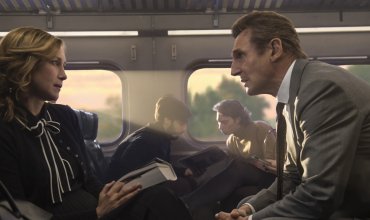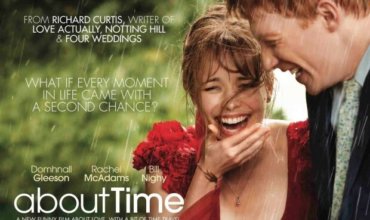We revisit the characters of TRAINSPOTTING twenty years later. Mark Renton (Ewan McGregor) returns home to Edinburgh after living in Amsterdam since the mid-1990s. He wants to reconnect with his old mates Spud Murphy (Ewen Bremner) and Sick Boy (Johnny Lee Miller). When they were in their twenties they were heroin users who saw numerous friends and lovers die due to the addiction. Now they’re in their forties and in varying states of health or decay. Renton has been clean for years. Sick Boy, who prefers to be called Simon these days, is snorting loads of cocaine. Spud remains the only one on heroin. There is a significant obstacle to Renton’s plans of reunion with his old chums and that is the way in which he left their circle two decades back. He was last seen exiting the London flat where they were all staying, carrying a bag filled with the proceeds of a drug deal. Spud and Sick Boy have not forgotten this betrayal. However it is their fourth friend, Francis Begbie, who is the real danger. Begbie is currently in prison on a murder conviction and if he crosses paths with Renton in Edinburgh, then Renton is a dead man.
When TRAINSPOTTING the movie was released in 1996 it was a phenomenon. It was based on Irvine Welsh’s best-selling book of three years previously. Welsh’s tales of heroin users in Edinburgh in the late 1980s had more than its 15 minutes of fame and cultural relevancy. Its powerful take on addiction, life in Thatcher’s Britain if you were young, poor or unemployed, what it meant to be Scots; Welsh talked about all of this and more and he did it using black humour and variations of Scots’ dialect. When screenwriter John Hodge and director Danny Boyle had their crack at adapting the material to film, they gave images, faces and a pulsing soundtrack to Welsh’s powerful scenes and characters. As film adaptations of books go, TRAINSPOTTING captured the essence of the page as brilliantly as David Fincher captured Chuck Palahniuk’s FIGHT CLUB (1999). Both cult novels spoke of masculine crisis and Generation X’s alienation from the consumer society that was supposed to give young people everything but in fact was nothing more than a lie. (Sound familiar, Millennials?)
The original TRAINSPOTTING created iconic moments and sequences that influenced cinema and spoke to the times. Renton’s “Choose Life” speech was much celebrated and parodied. It was an angry young man’s rejoinder to a morally bankrupt society that wanted his conformity; the slacker generation’s version of Ginsberg’s Howl. The book and the movie were dark, hilarious, pissed-off, moving and energising.
So how can TRAINSPOTTING 2 compete with that? It doesn’t. Sick Boy’s prophetic lines from the first movie, “At one time, you’ve got it, and then you lose it, and it’s gone forever” would seem to apply here. The reason to revisit this world is to catch up with the lives of Spud, Renton, Sick Boy and Begbie and there is something good in that. Bremner, McGregor, Carlyle and Miller revive their old personas without skipping a beat. It is also good to see Kelly MacDonald and Shirley Henderson return, albeit briefly. This is the fan service portion of the exercise. What we don’t have is a story that convincingly fills in those twenty intervening years.
Screenwriter Hodge and director Boyle have taken parts of Welsh’s material from Trainspotting and the sequel Porno and adapted it into a quieter more predictable tale. The middle part of these lives is marked by confusion and missed opportunity. This much is understandable, but the filmmakers’ decision to set the action in a quasi-crime world is somewhat puzzling. Suddenly, I felt we had crossed over into an episode of the old telly series Minder. In fact, many of the story choices feel informed by movies and television rather than arising naturally from the characters’ lives.
TRAINSPOTTING 2 has some solid sequences and Danny Boyle’s knack in creating mood through the skilful blending of image and song choice remains intact. I found the film entertaining, but not essential. 117 minutes (6/10)


